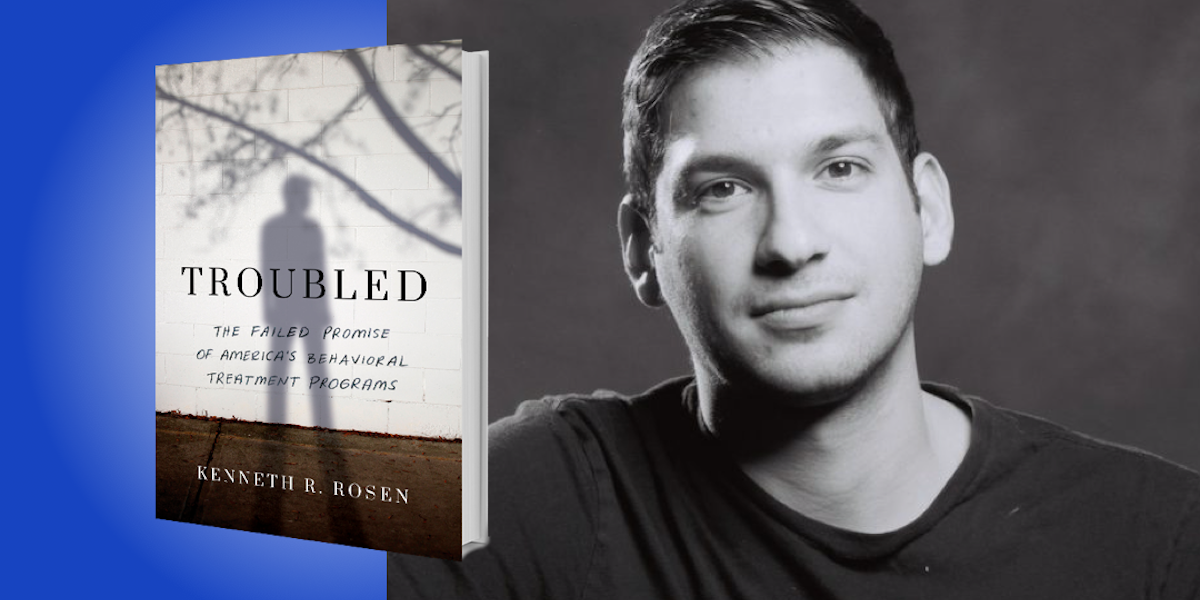Kenneth R. Rosen is a senior editor at Newsweek, based in Italy. He has also written for the New Yorker, the New York Times Magazine, and the Atlantic, and is a contributing writer at Wired.
Below, Kenneth shares 5 key insights from his new book, Troubled: The Failed Promise of America’s Behavioral Treatment Programs. Download the Next Big Idea App to enjoy more audio “Book Bites,” plus Ideas of the Day, ad-free podcast episodes, and more.
1. Troubled teen programs are themselves troubled.
When he was a teenager, the author was taken from his bed in the middle of the night and sent to a “tough love” program in upstate New York. He was then shuttled between several such programs, meant to address his behavioral problems at home. The experience was traumatic, and as an adult journalist, he decided to investigate this little-scrutinized industry. Interviewing hundreds of former participants, along with parents, administrators, and experts in healthcare and education, he discovered problems throughout these programs, and uncovered a need to study and regulate an industry that has remained largely invisible.
2. The “tough love” industry is constantly changing, and hard to study.
Troubled focuses on teen disciplinary programs where restraining and heavily medicating children are the norm. Some of these programs are no longer operational, but similar ones have cropped up to take their place, in the U.S. and abroad. Reporting on these programs is challenging, and problems in the industry often go unnoticed.
“Developing strong channels of communication with children—and keeping those channels open—is the single best way to keep them from falling into trouble.”
3. Most family problems are best solved at home.
While some parents feel the need to send troubled children off to special programs, in most cases behavioral issues are best addressed at home, with the help of professionals. Teens can be resistant to family therapy, and specialized therapy can be expensive, but keeping the child at home, and encouraging participation of all members of the family in crisis, is usually a better path to healing.
4. Develop channels of communication with your children.
As difficult as it is, developing strong channels of communication with children—and keeping those channels open—is the single best way to keep them from falling into trouble. The goal is to make the child comfortable with coming to the parent, to make the parent less of a disciplinarian and more of a guiding force. This calls for refraining from judgment and creating a safe space for children to develop a bond of trust.
“Classrooms are not the only places where things are learned, and following one’s passion sometimes demands taking a unique path.”
5. Foster a child’s interests.
Many parents complain that their child has lost interest in school and is more focused on playing video games, working on cars, or some other activity the parents view as a waste of time. But often, these obsessions are entirely healthy and can lead to successful careers, even if not along a conventional academic path. Parents can offer alternatives to traditional schooling, whether that be alternative high schools, vo-tech programs, independent study, or specialty schools. Classrooms are not the only places where things are learned, and following one’s passion sometimes demands taking a unique path.
For more Book Bites, download the Next Big Idea App today:
































